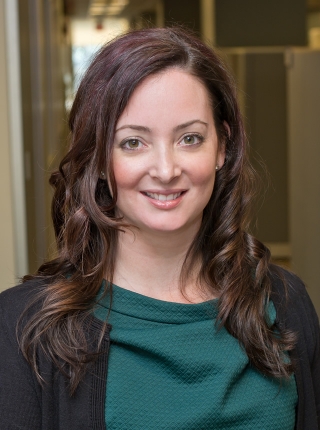
I Rally: Shannon Lynch
-
Until I was eight, my family and I lived in a New Jersey neighborhood for working families who received government interest rate subsidies to buy their homes. We then moved to a twin home in the Fox Chase/Burholme section of Philadelphia. I grew up in the shadow of Fox Chase Cancer Center, where I served as a high school volunteer. I never forgot the patients and families I had the privilege to meet. This experience influenced my career path.
I attended Marymount University on a full scholarship for women interested in pursuing science and mathematics. This scholarship included tuition, room, and board, and was a godsend for my family (I was the first of three girls to attend college). I earned a degree in molecular and cellular biology with a minor in history before earning a master’s in public health in environmental and occupational health at the George Washington University. I graduated with a PhD in epidemiology from the University of Pennsylvania in 2015.
From the very beginning of my career, funding from the NIH was influential in allowing me to follow my dreams and find success as a researcher. The support and funding I received as a young scientist were critical in leading me to where I am today. Without the opportunities that NIH funding afforded me, I would not have had the means or the personal connections to enter a career in cancer research. I was the first in my family to pursue science.
As a graduate student at the George Washington University, I received a National Research Service Award (NRSA) that was applied toward tuition support. The NRSA program is part of the NIH training grant program. Prior to pursuing my PhD, I was both a Summer Student and then an Intramural Research Training Award fellow at the National Institute of Diabetes and Digestive and Kidney Diseases and a Cancer Research Training Award fellow at the National Cancer Institute. Both of these positions were funded through NIH intramural research dollars.
As a doctoral student at the University of Pennsylvania, I was the recipient of an NIH F31 grant from the National Institute on Aging to investigate the effect of neighborhood, genes, and behaviors on telomere length, a biomarker of cancer and aging. I found that neighborhood can exert independent effects on telomere length, which suggests that social circumstances could have an impact on a person’s biology.
This fellowship grant paid part of my salary and tuition as a PhD student and allowed me both the means and the protected time needed to finish my degree program. The F31 also provided me with the skills and training necessary to pursue innovation in biosocial research and put me in a position to be hired as a tenure-track faculty member directly from graduate school.
Thanks to funding allocated to the NIH for research and training, I’ve been able to pursue a career in research and now give back to the community I grew up in. As an assistant professor at Fox Chase Cancer Center, I am developing innovative methods to study how multilevel factors, including genes, biomarkers, and neighborhood circumstances, can work together to affect cancer outcomes. My story is an example that investing in young scientists works. I believe that the NIH’s continued support of cancer research as well as investment in training the next generation of cancer researchers is critical to curing cancer.
Next month, I will join three other Fox Chase scientists at the Rally for Medical Research in Washington, D.C. While there, we will be given the opportunity to meet with our local representatives in Congress to advocate for continued funding for medical research and explain why this funding is vital to the continued success of science.
There, I will pay it forward. I will rally for the young scientists, whose contributions to the field are essential for ending cancer as we know it.
